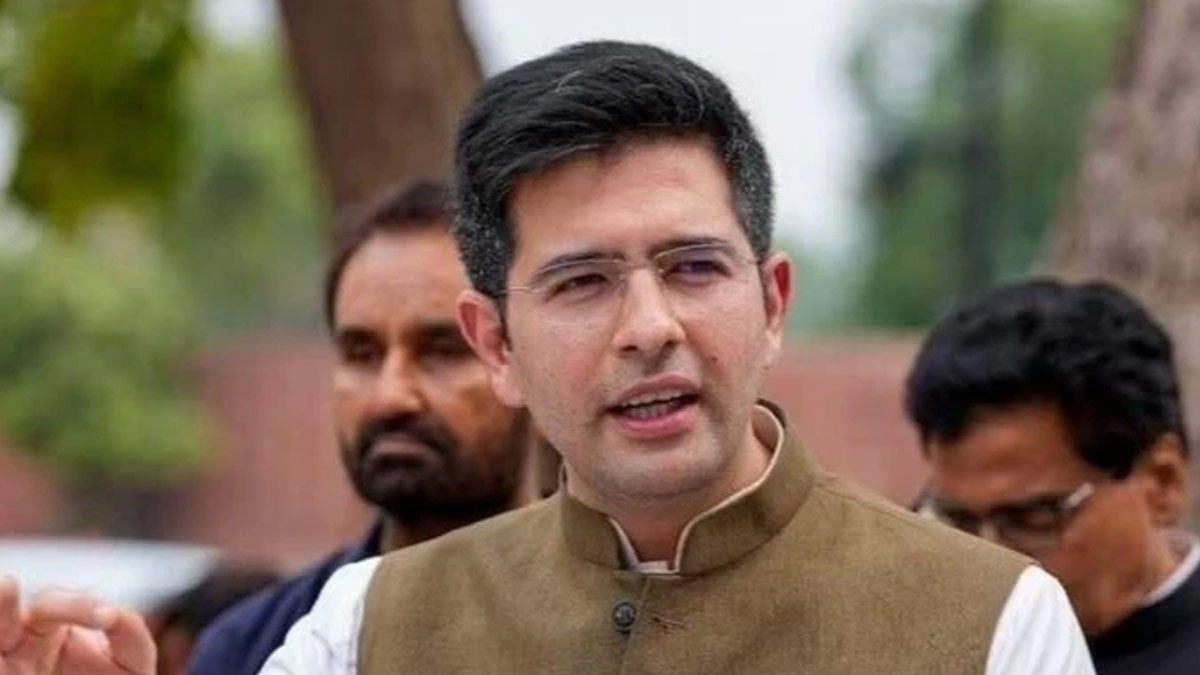
AAP Rajya Sabha MP Raghav Chadha's upcoming vitrectomy surgery in the United Kingdom to prevent retinal detachment has brought attention to this serious eye condition. As per party sources, retinal detachment, characterized by small holes in the retina, poses significant risks to vision and warrants immediate treatment to prevent permanent damage.
Table of Content:-
View this post on Instagram
Understanding Retinal Detachment
As per Dr Mahipal Singh Sachdev, President and Managing Director of Center for Sight, New Delhi, retinal detachment is a serious eye condition wherein the retina, the tissue layer at the back of the eye responsible for vision, detaches from its supporting tissues. This detachment disrupts the blood supply to the retina, leading to compromised vision and potentially irreversible blindness. The retina plays a crucial role in sensing light and transmitting signals to the brain for visual perception.
Symptoms of Retinal Detachment
While some individuals may not exhibit any symptoms, others may experience sudden onset symptoms, including:
- Flashes of light (photopsia)
- Increased number of floaters in vision
- Peripheral vision darkening
- Shadowing or partial vision loss
Prompt medical attention is essential upon experiencing these symptoms to prevent further vision deterioration.

Causes and Risk Factors
Retinal detachment can arise due to various factors, including:
- Ageing
- Eye injuries
- Previous retinal detachment or family history
- Prior eye surgeries
- Underlying eye conditions like nearsightedness, posterior vitreous detachment, and diabetes-related retinopathy
Individuals at high risk for retinal detachment should maintain regular eye exams and adhere to preventive measures recommended by healthcare providers.
Also Read: Sadhguru Undergoes Surgery For Chronic Brain Bleed; Everything To Know About It
Treatment Options for Retinal Detachment
The choice of treatment for retinal detachment depends on the severity and specific circumstances of the condition. Treatment modalities include:
Laser Therapy or Cryopexy
These procedures are employed to seal retinal tears before detachment occurs, creating scars that secure the retina in place.
Pneumatic (Gas Bubble) Retinopexy
A gas bubble is injected into the eye to exert pressure on the retina, facilitating its reattachment. Laser or cryopexy may be performed to seal retinal tears in conjunction with this procedure.
Scleral Buckle
This surgical technique involves placing a silicone band around the eye to support and reposition the detached retina. Laser or cryopexy may also be utilized during this procedure.
Vitrectomy
In this surgical intervention, the vitreous gel within the eye is surgically removed, and the retina is reattached using laser therapy or cryopexy. A gas, air, or oil bubble may be inserted into the eye to facilitate retina reattachment.
Postoperative Care and Considerations
Following retinal detachment surgery, patients are typically advised to maintain specific postoperative protocols to optimize healing and recovery. These may include maintaining a particular head position, avoiding certain activities, and adhering to altitude restrictions if a gas bubble has been inserted into the eye.
Ayurvedic Recommendations By Expert
According to Dr Mandeep Singh Basu, Director- Dr. Basu Eye Hospital, "Proactive eye care from childhood is crucial in preventing myopia progression and reducing the risk of complications such as retinal detachment. By addressing myopia early on and implementing preventive measures, we can safeguard cases of high myopia from happening and promote lifelong ocular health. He also said that prevention is always better than cure when it comes to eye health."
Indeed, myopia can progressively worsen under specific conditions, posing significant risks to eye health. In today's modern era, where we are constantly surrounded by various gadgets, maintaining optimal eye health can be challenging. Regular check-ups by ophthalmologists are strongly advised to monitor any changes in vision.Alternatively, Ayurveda offers accessible and home-based remedies to alleviate myopia symptoms:
Yashti Madhu: Mixing a teaspoon of Yashti Madhu with ghee and honey can provide relief for myopic conditions.
Saptamrita Lauha: This remedy contains medicinal ingredients such as triphala, yashtimadhu, lauha bhasma, ghee, and honey, which support nervous system function, thereby easing myopic issues. Consuming it with milk enhances its effectiveness.
Dietary adjustments: Myopia can be exacerbated by vitamin deficiencies in the body.
Therefore, incorporating vitamin-rich foods into the diet can boost immunity and alleviate strain on the eyes caused by myopia. Foods such as carrots, leafy greens, citrus fruits, nuts, berries, and fish, which are abundant in vitamins, are particularly beneficial for eye health.
Bottomline: Prioritizing Eye Health
Raghav Chadha's decision to undergo vitrectomy surgery underscores the importance of prioritizing eye health and seeking timely treatment for retinal detachment. By raising awareness about this sight-threatening condition and its treatment options, individuals can take proactive steps to safeguard their vision and ensure optimal eye health in the long term.
Also watch this video
Read Next
World Head Injury Awareness Day: Expert Shares Why Mild Head Injuries Should Be Taken Seriously
How we keep this article up to date:
We work with experts and keep a close eye on the latest in health and wellness. Whenever there is a new research or helpful information, we update our articles with accurate and useful advice.
Current Version